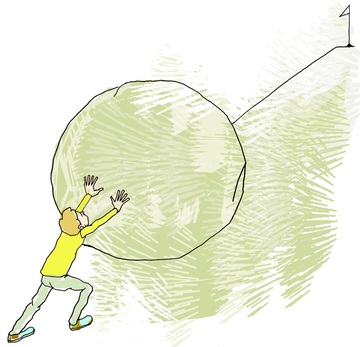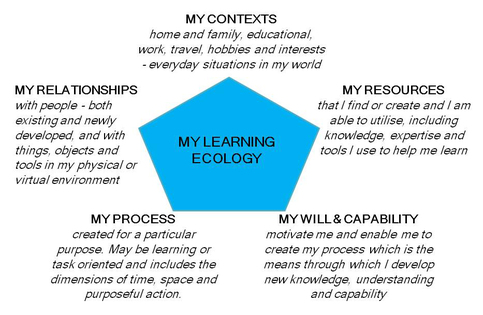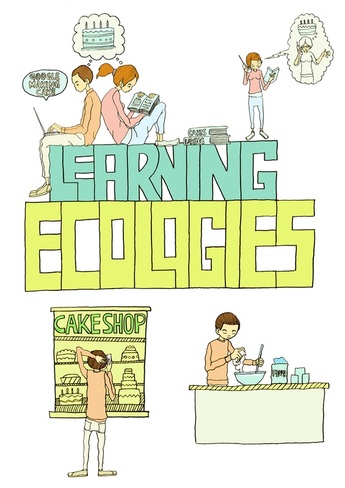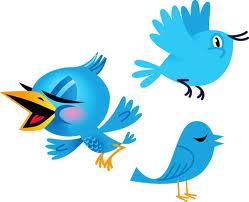
The experience caused me to reflect on the role of 'slogging' - in developmental processes. To slog is to keep doing something even though it is difficult or boring. Slogging involves working on something in a steady, determined, methodical and often repetitive way. It also implies that progress is slow and perhaps laborious, in contrast to starting something new which is full of enjoyment or finishing something where there is a sense of achievement and fulfilment.
When you start something your imagination is engaged and you think freely and adventurously about the what it is you want to do. You feel energised as you put the building blocks in place like new relationships, infrastructure or the making of tools and you see a lot of progress in a short space of time. But after this initial excitement there is often a much longer period of 'slog', when you just have to knuckle down to work that is more systematic and routine and is perhaps not so interesting and exciting, but which is absolutely necessary for the success of the project. Slogging is often the way you complete something that you started and its where most of the effort and least of the reward resides.
Every significant developmental process has elements of slogging within it and the harder and more challenging it is the more slog there is. In fact for some development projects perhaps 80 or 90% of the time can be categorised as a slog. Slogging away at something requires persistence and determination and focus. It's easy to get distracted when you are in slogging mode. I recognise the symptoms of continuously looking for things to do other than the things that I should be working on - including writing this piece.
So how do I deal with this need to slog in a development process? The first strategy I use is to convince myself that it has to be done, not tomorrow or the next day but now, and the best way of doing this is to publicly commit to a timeline. Another strategy is to break the job that needs doing into smaller bits and set a target - I'm going to do these things by this time. The third thing I do is reward myself by taking a break and doing more interesting things when I have done a certain amount of slogging. My daughter who has been revising solidly for her mock GCSE's for several weeks became very adept in this technique. The fourth thing I do is periodically make a list of what I have done so I can see the progress I have actually made.
But even when we are slogging we can still be inspired if we are able to notice the right things. I watch my daughter, who is a mum to three young children including 18 month old twins... slogging away day after day. It's a good word to describe the daily routines she undertakes. I know it's hard work because I look after the twins one day a week.. The only thing she ever complains about is not having enough sleep and the effect that this has on her ability to perform her motherly duties the next day. The way she approaches her tasks teaches me how to extract pleasure and joy from the many moments that emerge when you are looking after children if you approach them positively and imaginatively, and you look for the good and interesting things to emerge. She is a master at turning the repetitive and mundane into joyful experience. And I guess this is where the inner motivation to sustain herself resides as well as the sense of purpose, duty and responsibility for the care and wellbeing of her children. I guess the reward for all the slogging involved in bringing up young children is to see them learn and develop so that they are able to do the things they need to be able to do to be successful in life.
Perhaps we derive different psychological benefits from starting something and slogging through it. Starting gives us the motivational force derived from visions and being able to see a different future while slogging enables us to build resolve and determination to secure that future. Looking back over the last few days I didn't feel at all creative and perhaps there is little in the way of opportunity for creativity when you are slogging away at something. But one thing is certain, while creativity is essential to the success of a development project so is slogging. Please share your experiences and insights of slogging in the development process.








 RSS Feed
RSS Feed